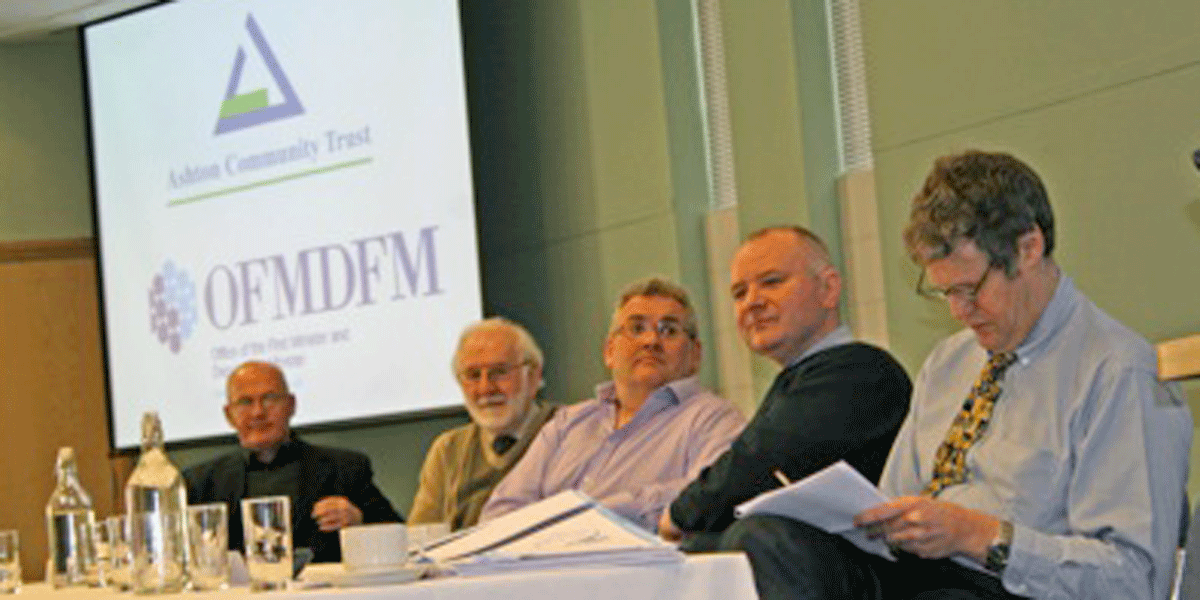Social and economic problems are worsening for many people living in interface areas of North Belfast despite the significant efforts of community groups and representatives over the past ten years, a leading academic in transitional justice has said.
Eilish Rooney, senior lecturer at the Transitional Justice Institute at the University of Ulster, was speaking after a conference ten years on from the Dunlop Report.
The 2002 report led by Presbyterian Minister Rev John Dunlop looked at social, economic and political problems across North Belfast and described the area as ‘a patchwork of small communities often separated by walls and peace lines’.
The report recommended that the government should develop a long-term strategy for the area, encourage partnerships and take responsibility for addressing issues in interface areas.
Speaking to the North Belfast News after the Dunlop Report Reloaded conference at NI Council for Voluntary Action’s base on Duncairn Gardens on Monday, Eilish Rooney said tremendous strides had been taken in the last ten years but the long term solutions still needed to be found to ease social and economic problems.
“There is very smart thinking going on around addressing critical issues relating to poverty and deprivation,” she said.
“On the other hand we see socio-economic problems remaining intact and indeed worsening. These are huge problems that are not easily solved and sometimes government departments struggle with their interpretation of them or are sluggish in realising the potential of the problems and that makes for a mixed picture.”
She said research into problems facing women in particular is needed.
“I would like to see some research into women’s poverty levels and take that as a strategic way forward in tackling issues,” she said.
“All the richness of debate and experience of people in NGOs (non-government organisations) is paying off on the ground but the longer term picture needs more attention.”
She is currently working on a transitional justice programme with grass roots activist groups in New Lodge, Tiger’s Bay and Mount Vernon and commended the ongoing work by community groups to improve the lives of local people.
“Working in North Belfast one thing that was very striking from my point of view was the difference grassroots community groups are making, by taking on an agenda to make positive change happen. I have found working with Bridge of Hope to be truly inspirational,” she said.
Jim Deery, from the Ashton Community Trust who organised the conference on Monday, said they hoped to “inspire and facilitate ideas and analysis” and subsequent academic research.
“We have are trying to spark it off, to get a measurement of where we are ten years on from the Dunlop report,” he said.
“The gut reaction is that things have changed for the better but if someone came along and said ‘prove it?’ could we do that? That is why we want academic research to measure how far we have really come. We want hard evidence if we are going to back up what we are seeing on the ground.”





